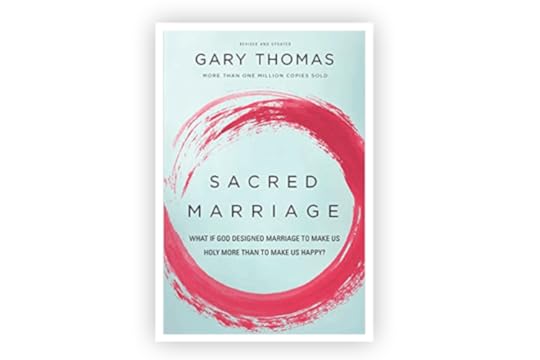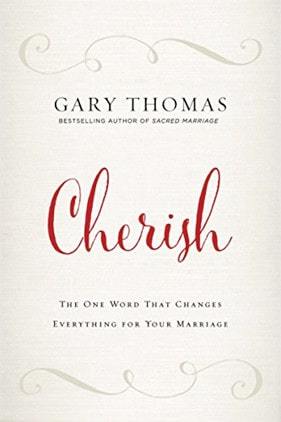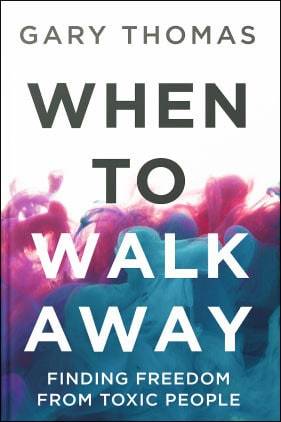Who Shouldn’t Read My Books: When Writings on Marriage and Spiritual Formation Collide
Throughout my career I have felt significant tension between writing about marriage and upholding the ideal of growing in Christ, which includes sacrifice. Sacred Marriage is really, in my view, a book on spiritual formation, while Cherish and A Lifelong Love are more “traditional” marriage books.

The tension I face is that the ancients teach sacrifice and idealism in virtue as necessary elements of spiritual formation, reminiscent of the teachings of the apostle Paul. But when addressing contemporary marriage, it’s irresponsible not to include caveats about abuse. The line between patience, service, and forgiveness as a Christian discipline, and enabling abuse, isn’t always clear cut. Physical violence is clear cut—there should be a zero-tolerance policy in the church for domestic violence. But where do verbal attacks, selfishness, and narcissism fall? (I’m not speaking about the clinical kind of narcissism, but rather the way the word is used more popularly to describe the sinful self-absorption that many of us fall into.) There is certainly a point where emotional abuse is equally untenable, and the work of Leslie Vernick and many others can be helpful in finding the appropriate line between people who get angry and repent and people who are abusers. It may surprise some how many Christian books on marital abuse have been written in the last decade (See here: https://www.cbeinternational.org/resource/article/mutuality-blog-magazine/15-books-domestic-violence-pastors-believers-and-survivors). So, help is out there. If you think you may be in a destructive marriage, please stop reading this post and read some of the books listed above.
Having said that, Christ models ideal forgiveness, patience, and even sacrifice, as do the classics. I was reminded of this recently when reading Francis of Assisi. Francis lived and taught heroic piety in a way that could be dangerous in a marital context but is so convicting as a Christian ideal for the kind of person we probably all want to be.

Let me give you an example from a late Franciscan teaching about what “true joy” really is. This was dictated by Francis of Assisi to Brother Leo. It’s a bit long, but worth it, and I doubt Francis will sue me for copyright if I print it with just a few tiny abridgements and clarifications:
“A messenger comes and says that all the masters in Paris have come into the Order (become Franciscans); this is not true joy. Or say that all the archbishops and bishops and the king of France and the king of England have entered the Order; this is not true joy. Or say that all my brothers have gone to the nonbelievers and converted all of them to the faith, or that I have so much grace from God that I heal the sick and perform many miracles. I tell you that true joy does not consist in any of these things.
“What then is true joy?
“I return from Perugia and arrive here in the dead of night; and it is wintertime, muddy and so cold that icicles have formed on the edges of my habit and keep striking my legs, and blood flows from such wounds. And all covered with mud and cold, I come to the gate and after I have knocked and called for some time, a brother comes and asks, ‘Who are you?’ I answer, ‘Brother Francis.’ And he says, ‘Go away, this is not a proper hour for going about, you may not come in.’ And when I insist, he answers, ‘Go away, you are a simple and a stupid person; we are so many and we have no need of you. You are certainly not coming to us at this hour!’ And I stand again at the door and say, ‘For the love of God, take me in tonight.’ And he answers, ‘I will not. Go to the Crosiers’ [a different Order of monks] place and ask there.’ I tell you this: If I had patience and did not become upset, there would be true joy in this and true virtue and the salvation of the soul.”
As a writer on Christian spiritual formation, I love the convicting nature of this story. It’s powerful, and it resonates with me, and it humbles me over how easily irritated I can become with others. I want this truth. I need this truth. But it would be monstrous to tell this story to a woman in a ten-year marital hell of abuse.

When I write and preach, I reach high. Through the years I have tried to become more sensitive to issues (like marital abuse). I didn’t, at one time, understand that some men get an evil, sick pleasure out of terrorizing a woman, and these toxic husbands wanted to keep the marriage alive only to preserve the platform to keep terrorizing. When I wrote on sex, I was completely unaware of the cavernous “orgasm gap.” It never occurred to me that men would be so selfish as to have sex with their wives and be okay with her not finishing. The statistics astonished me. (I realize there are reasons other than mere selfishness behind the orgasm gap; this is just an example.)
I apologize for my ignorance.
Thankfully, with the gracious acquiescence of my publishers, I’ve had the opportunity to revise many of my books, address these issues further in blogs, and work hard to be more thoughtful and precise, but I’m sure there is still much I haven’t gotten exactly right.
All of which is to say, I completely understand if someone says, as so many have, “Gary’s books have inspired me and challenged me like no others (I’m not trying to brag with that last quote—but I can’t even count the number of times these or near identical words have been written to me or spoken to me),” but then you add, “but they’re not for you.”
Both things can be true: high, idealistic marriage books can be appropriately convicting for many marriages, hopefully the vast majority of marriages, but shouldn’t be recommended to those who are in abusive or even near-abusive marriages. I don’t take offense at this: I applaud it and commend it.
I want to keep “reaching high.” I want to err on the side of calling us to patience, sacrifice, service, generosity, humility, gentleness and compassion, all the while realizing that courageously saying “no” to further abuse is about the holiest act any spouse could ever perform.
I do still believe that, properly understood, God designed marriage to make us holy even more than to make us happy, and that we should learn to forgive, as Jesus taught us, “seventy times seven.” For the love and honor of God, I don’t believe this is the proper place to begin counseling a woman in an abusive marriage.

The Bible predicted that Jesus would be gentle (Zechariah 9:9, quoted again in Matthew 21:5), Jesus affirmed that He was gentle (Matthew 11:29), and the early church remembered Jesus as gentle (2 Corinthians 10:1). This is the same Jesus who overturned the tables in the Temple, using a whip (John 2:15). Is that contradictory? Or is it just the reality of living with high ideals in an evil world?
I think it’s the latter (see When to Walk Away).
So, thank you for those who read and recommend my books. And for those who think they can be dangerous for some, I don’t disagree. I have tried as diligently as I know how to qualify their danger and put everything in context. Perhaps the line I have drawn is too far one side or the other. Before God, I have done and am doing my best, seeking the guidance of the Holy Spirit and resting in the forgiveness of the God who knows my heart wherever and whenever I get it wrong.
My heart truly is to serve God by serving His church. I am not particularly intelligent, or good, or wise, or discerning, but somehow and for some reason God has given me a platform. I don’t take this burden lightly, especially as I am certain that many others could bear it more wisely and more appropriately, but I am determined to do my best to get it right as God gives me the grace to see the right.
The post Who Shouldn’t Read My Books: When Writings on Marriage and Spiritual Formation Collide appeared first on Gary Thomas.



